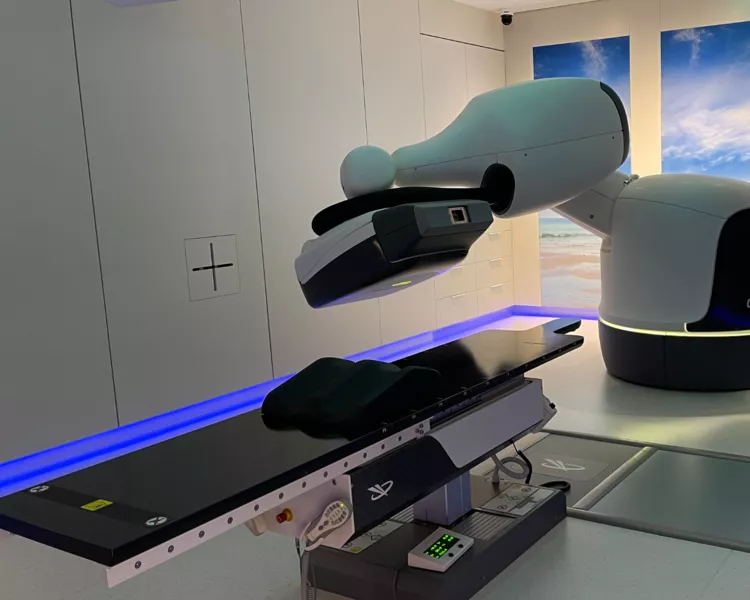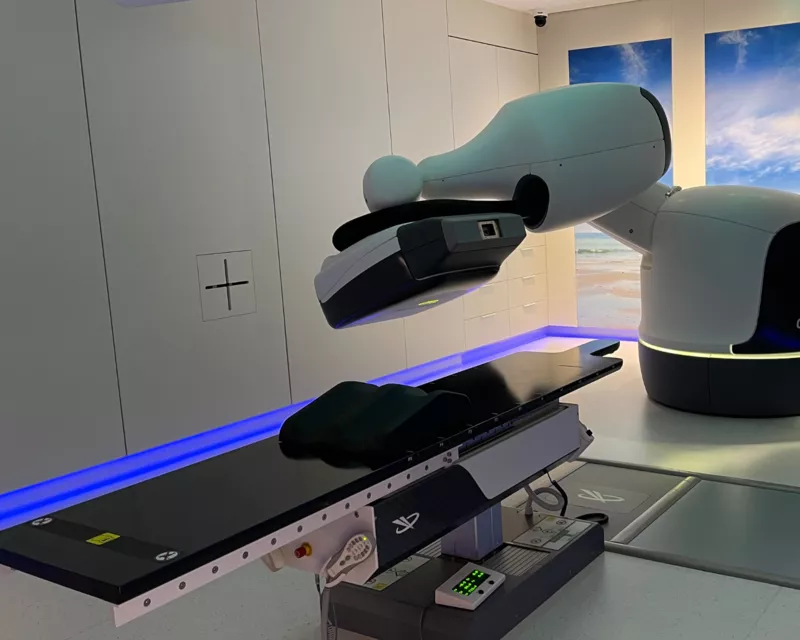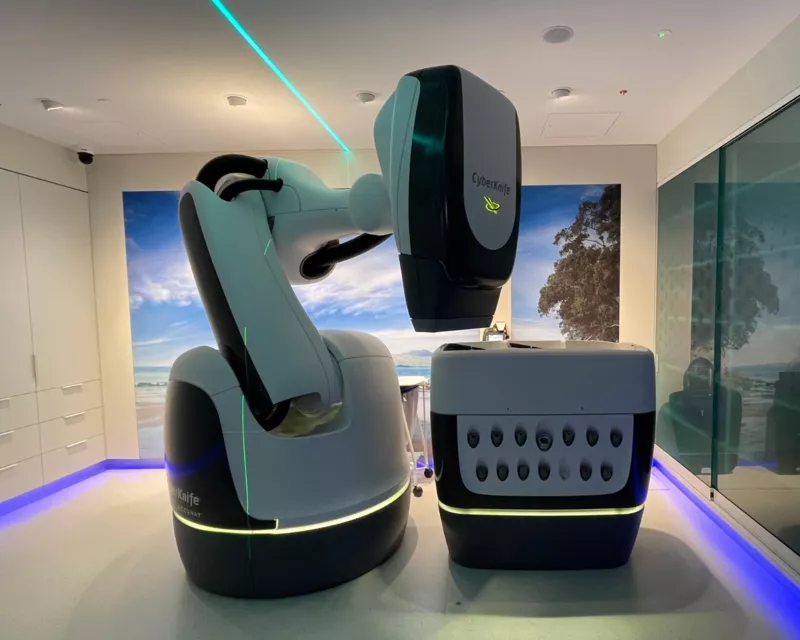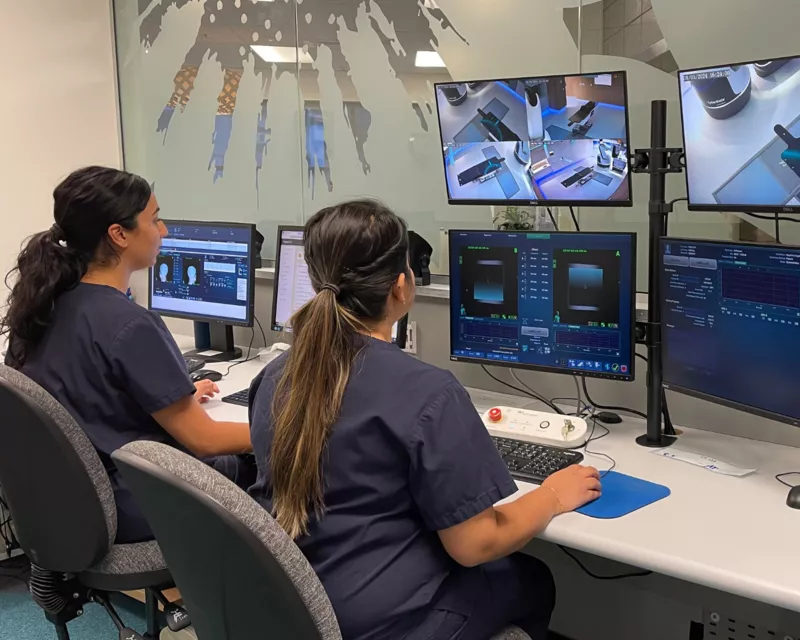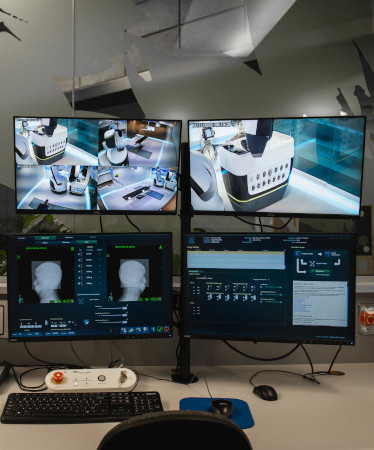Prostate Cancer in New Zealand: Improvements in Treatment and Outcomes
Mon June 24th 2024
Prostate cancer diagnosis rates have been climbing steadily in Aotearoa, with around 4000 new cases reported each year. While this may seem concerning at first glance, there's a brighter side to this story: the number of deaths attributed to prostate cancer is actually decreasing. This shift is due to several factors, all of which provide a more positive outlook for the management and treatment of this disease.
One of the key reasons for the decline in prostate cancer-related deaths is the increasing number of men opting for regular prostate checks. By undergoing screening, more cancers are being detected at an early stage when they are more treatable. Discovering prostate cancer earlier, may allow for prompt intervention and a higher likelihood of successful treatment.
While routine testing for all men without symptoms is not currently recommended in Aotearoa, there may be reasons why a check is important for many, such as family history or age (over 50 years).
In addition, new medical research and improving technology are leading to even better treatment options that not only combat the disease but also improve patients' quality of life during and after treatment.
Treatment Options
There are a number of options for treating prostate cancer. The best approach will be individual to each patient and will consider how advanced the cancer is, and the general health of the patient. Treatment options, which may be used sequentially or in combination, include:
- Active surveillance (monitoring with regular check-ups)
- Surgery - removal of the prostate
- Radiation therapy
- Hormone therapy
- Chemotherapy
- Immunotherapy
For more information about each of these treatment options, view treatment of prostate cancer on the Cancer Society website.
Risks and Side Effects of Prostate Cancer Treatment
There are a number of side effects which can occur as a result of having treatment. Some are more common than others, and the impact they have will be affected by factors such as the type of treatment, patient individuality, combination of treatments, and disease severity. Some side effects will have short term impacts disappearing gradually in the weeks or months after treatment, while others will be longer term or permanent. Not all patients will experience these side effects, and each patient’s experience of them will be unique.
Erectile Dysfunction: Surgery and conventional radiation therapy can also affect the nerves and blood vessels involved in achieving and maintaining an erection, resulting in erectile dysfunction.
Fatigue: Many prostate cancer treatments, including prostate surgery, radiation therapy, and chemotherapy, can cause fatigue, which may persist for weeks or months after treatment.
Urinary Incontinence: Some treatments, particularly surgery and conventional radiation therapy, can damage the muscles and nerves controlling bladder function, leading to urinary incontinence or leakage.
Bowel Problems: Radiation therapy, especially when directed at the prostate gland, can cause inflammation and irritation of the rectum, leading to bowel problems such as diarrhoea, urgency, or rectal bleeding.
Changes in Hormone Levels: Hormone therapy, often used in advanced prostate cancer cases, can cause a range of side effects related to changes in hormone levels, including hot flashes, loss of libido, and osteoporosis.
Infertility: Some treatments, such as surgery to remove the prostate gland (radical prostatectomy) or certain types of prostate radiation therapy, can affect fertility by damaging the reproductive organs or disrupting sperm production.
Emotional and Psychological Impact: Coping with a prostate cancer diagnosis and undergoing treatment can take a toll on mental health, leading to feelings of anxiety, depression, or stress.
Support for Managing Side Effects
The medical team responsible for a patient’s cancer treatment will also provide support for patients experiencing side effects. Free additional support can be found through the Cancer Society including community nursing support, trained psychologists and a cancer helpline. Local support groups and a free counselling service are provided by the Prostate Cancer Foundation NZ.
Advances in Prostate Cancer Treatment
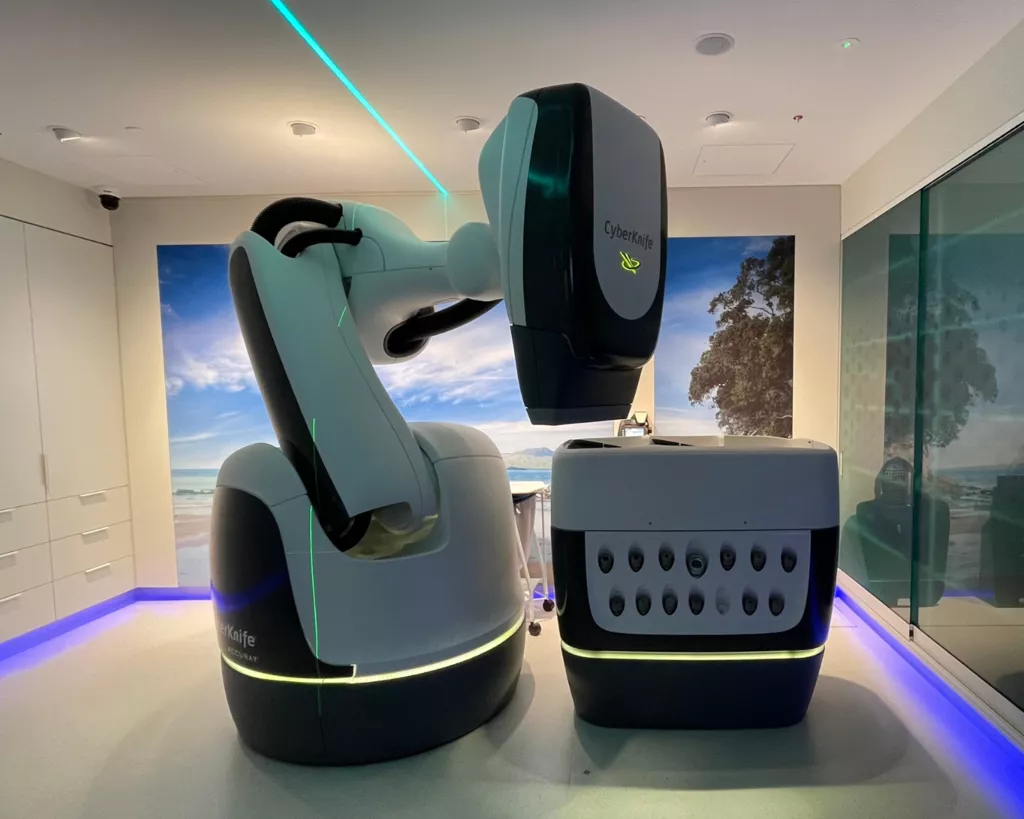
There are a number of advances in the treatment of prostate cancer, including the use of CyberKnife for radiotherapy. CyberKnife shortens treatment time and minimises side effects compared to conventional radiation therapy, and in some cases can avoid the need for surgery.
About CyberKnife - Robotic Radiation Therapy for Prostate Cancer
CyberKnifeis a type of radiation therapy system that uses advanced technology to deliver highly precise doses of radiation to cancerous tumours while minimising damage to surrounding healthy tissue.
Before treatment starts, detailed 3D scans are taken, these scans help to precisely locate the tumour and plan the treatment. During treatment, CyberKnife’s robotic arm moves around the patient’s body delivering radiation beams from potentially hundreds of different angles. CyberKnife continuously tracks the position of the tumour and adjusts in real-time to account for any movement.
Unlike traditional surgery, CyberKnife treatment is non-invasive and does not require incisions to the skin. Treatment is usually delivered in just five 30-minute treatment sessions over approximately 10 days, with patients being able to return to their normal activities shortly after each session.
The Benefits of CyberKnife
CyberKnife is often used to treat prostate cancer because of its precision. It can target the tumour more accurately while avoiding nearby healthy tissues. This helps minimise side effects like incontinence and erectile dysfunction, which can occur when healthy tissues are affected by radiation.
Because of its precision, CyberKnife can deliver higher doses of radiation to the tumour while sparing nearby healthy tissues.
When can CyberKnife be used?
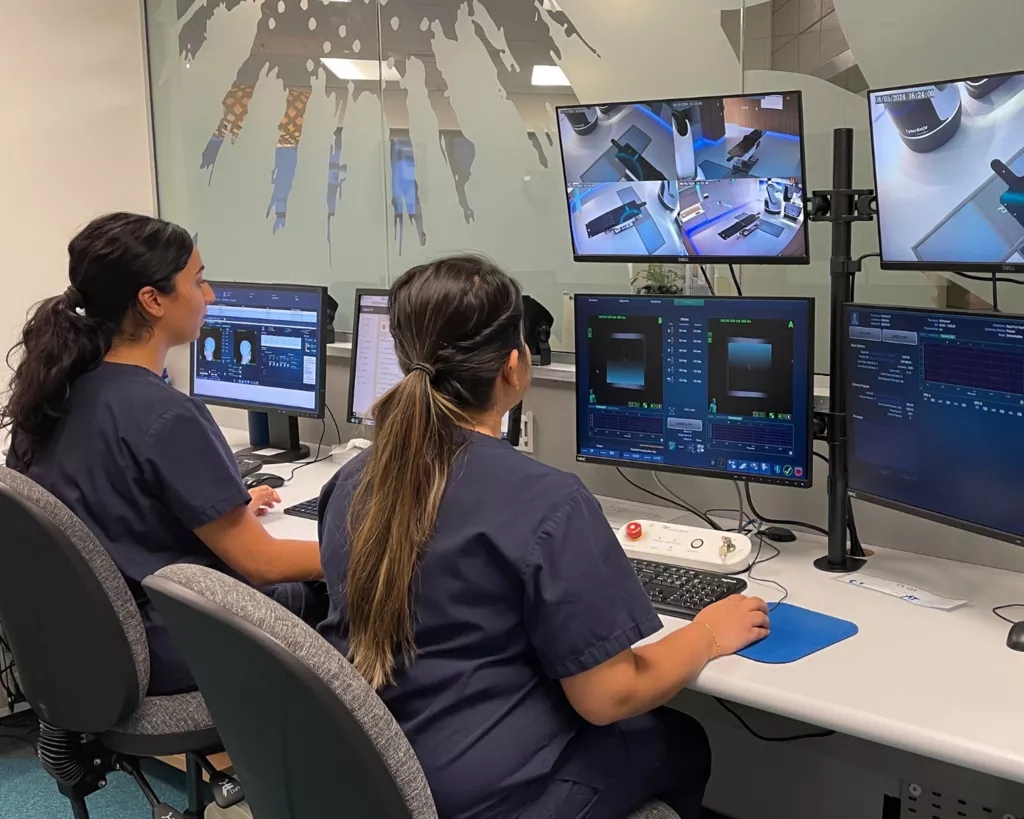
CyberKnife is suitable for treating early-stage localised prostate cancer through to advanced or recurrent prostate cancer. For patients with early-stage, localised prostate cancer who are not candidates for surgery or who prefer a non-invasive alternative, CyberKnife can serve as a primary treatment option. Additionally, it can be used in combination with other therapies.
Where is CyberKnife available?
CyberKnife is available in New Zealand exclusively at Auckland Radiation Oncology.
If you would like to know whether CyberKnife is appropriate for your treatment, or a loved one, talk to your GP or urologist, or ask for a referral to a radiation oncologist.

Understanding Your Treatment
The Patient Pathway
We understand you may be anxious about having radiation therapy. Read about the patient pathway and what to expect before, during and after radiation therapy treatment. At ARO we work closely with your radiation oncologist to develop an individualised treatment plan for each patient.
Explore the patient pathway

